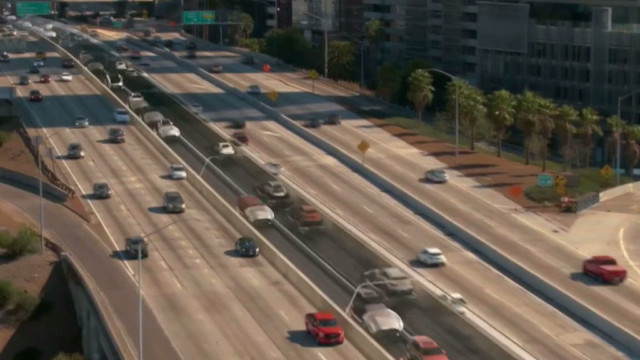Like many big cities around the world, traffic in Denver can be a challenge. A top official at the Colorado Department of Transportation summed it up in two words.
“A mess,” Peter Kozinski, director of CDOT’s RoadX transportation program said.
He said Denver has run out of room for new highways. “I think we’re really limited,” he said. “There are a lot of places that are at max road.”
One possible solution, Kozinski suggested, is moving more people on roads that are already there. The California startup Arrivo hopes to whisk passengers and freight at 320 kilometers per hour on an urban network within metro areas like Denver.
“How can we get from the furthest distance in 20 minutes?” Andrew Liu, Arrivo president said. “That’s our goal.”
CGTN’s Hendrik Sybrandy reports.
Liu said a one kilometer-long track will soon help test the system’s technology. The track will be built on land northeast of Denver, not too far from the city’s airport.
Arrivo will also construct a research and development office in roughly the same area. Several high-speed transportation networks are currently under development in the U.S.
One of them, Virgin Hyperloop One, proposes to move passengers and cargo over longer distances at roughly 1000 kilometers per hour. Arrivo’s system, which uses magnetic levitation to make pods float and electric power to push them forward, accommodates four different kinds of vehicles.
“From moving goods to moving individual motorists to transit, 20 or 30 person buses, and eventually, when autonomous cars are here, to really be integrated with autonomous vehicles,” Liu said.
The test track will sit next to an existing tollway. Arrivo’s network could eventually run right down the middle of it or similar highways.
“What really excites us is the opportunity that in the given space of one lane of an Arrivo system, there’s the potential to move 10 times as much traffic,” Kozinski said. He argued the time has come for this technology.
“It’s getting cheaper, it’s getting more reliable,” he said. “It’s becoming a thing that people are excited about.” Forty-two people currently work for Arrivo.
Liu predicts that number will triple by year’s end. He expects actual operations will begin in 2021. “Our ultimate goal is to end traffic,” he said.
A lofty but worthy goal, at a time when many drivers are stuck in traffic that barely creeps along.
 CGTN America
CGTN America

